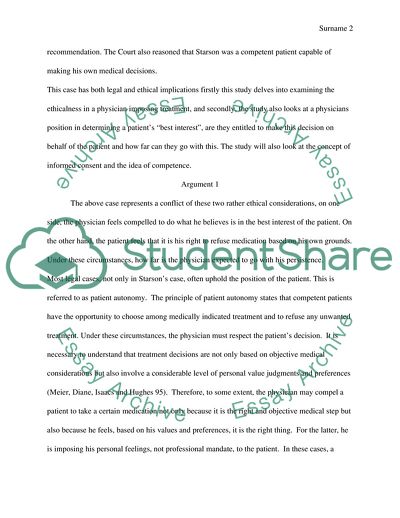Cite this document
(The ase of Scott Starson Case Study Example | Topics and Well Written Essays - 1250 words - 3, n.d.)
The ase of Scott Starson Case Study Example | Topics and Well Written Essays - 1250 words - 3. https://studentshare.org/social-science/1795207-biomedical-ethics
The ase of Scott Starson Case Study Example | Topics and Well Written Essays - 1250 words - 3. https://studentshare.org/social-science/1795207-biomedical-ethics
(The Ase of Scott Starson Case Study Example | Topics and Well Written Essays - 1250 Words - 3)
The Ase of Scott Starson Case Study Example | Topics and Well Written Essays - 1250 Words - 3. https://studentshare.org/social-science/1795207-biomedical-ethics.
The Ase of Scott Starson Case Study Example | Topics and Well Written Essays - 1250 Words - 3. https://studentshare.org/social-science/1795207-biomedical-ethics.
“The Ase of Scott Starson Case Study Example | Topics and Well Written Essays - 1250 Words - 3”. https://studentshare.org/social-science/1795207-biomedical-ethics.


